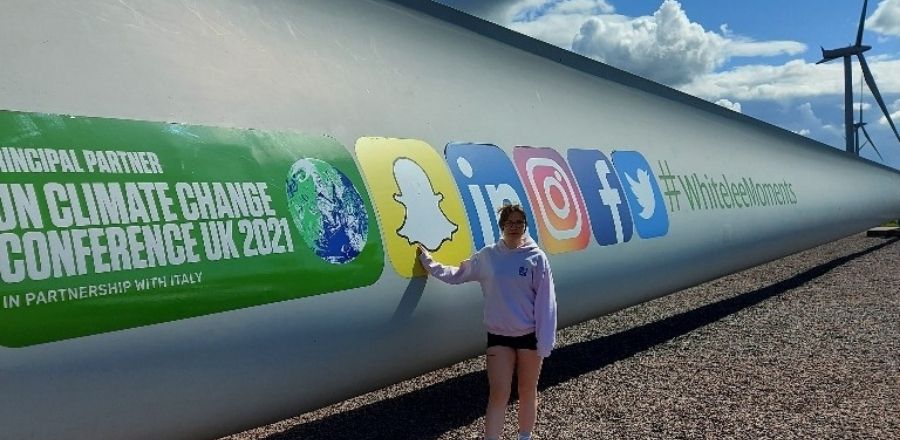Environmental Management student discusses #OnlyOneWorld as part of World Environment Day

GCU is celebrating World Environment Day, an annual event which encourages the awareness of environmental protection.
This year, World Environment Day has used the theme #OnlyOneWorld which calls for collective transformative action on a global scale to celebrate, protect and restore the planet.
As part of the day, we spoke to Environmental Management student Urška Dawkins who passionately advocates the importance of sustainability and the impact of climate change. Urška shared her thoughts on the importance of the day and the small ways in which everyone can help to tackle the climate crisis:
This year’s World Environment Day theme is #OnlyOneEarth – why is this message especially important in the current climate?
“I hate to use the cliché phrase that everybody uses, but there really is ‘no planet B’ so this year's theme is a really key point to raise.
I think it's easy for people to forget just how vulnerable and precious our Earth is, because we get lost in our day to day life and these kind of things just normally won't cross your mind unless you are part of a scientific or environmental field. That's why it's so important to see these kinds of messages in the media and make sure they’re regularly being spoken about.
Once we go past what our Earth can repair, it becomes too late for action, and unfortunately people only seem to switch on to what is happening when climate change starts to have an impact on them personally, and by that point it is often too late. It's important that people open their eyes and get involved now.”
We, as a society, are encouraged to adopt small changes which can have a wider impact – what sort of changes would you personally suggest doing as an Environmental Management student?
“There are so many things that we can all do in order to make a difference. One of the biggest problems is people believing that their own personal actions won't make a difference, but if everybody thought that way then nothing would happen. If everybody decided to make some small changes, then that is a million times better than people deciding that their actions won't help. Some actions can even save us money, and who wouldn't want to do that?
- Eat less meat. Try a vegan/vegetarian diet to reduce person carbon footprint - even cutting out red meat will reduce it.
- Use a dishwasher. Let your dishes pile up till you really are scraping the barrel for what to use for your cereal, and then put them in the dishwasher. It saves effort and water rather than washing up by hand.
- Use public transport to get to and from university. For under 21s, bus travel is free so you may as well take full advantage of it, and many buses are now electric. If you have to use a car or a taxi, try car sharing so that there are less people taking individual cars. Better yet, cycle or walk everywhere! I personally would be happy to walk somewhere if it was less than 4/5 miles, and the more you get out in nature, the more you actually open your eyes to how important it is. Not only does the fresh air do you good, but you can also try some litter picking whilst you're out!
- Use the ‘Ecosia’ browser. It plants trees using the money that it makes from ads, and it even tells you how many trees you are responsible for planting.
- Use the app "WhenToPlugIn" - it tells you when your energy supply is coming from renewable sources.”
Organisations also have a big responsibility in terms of improving their actions towards sustainability – what do you think universities could try to do?
I recently took part in the BA SHAPE SOS programme and we focused on things that GCU could do to incorporate the UN's Sustainable Development Goals. One of the ideas we discussed involved working alongside the Common Good Award to create sustainability programmes or placements.
The University of Manchester has a programme that influences their students to work towards something sustainable, and encourages them to really make a difference in their community. This is something that GCU could adopt. We could have guest lecturers who are experts in the sustainability field who could host talks. Not only to students, but also to lecturers and curriculum managers as these people can also make a difference.
Imagine the change that could be made if every degree programme had at least a few units that provided education on one of the three pillars of sustainability?”
Find out more about GCU’s sustainability goals on their webpage
By Rachael McAlonan
Got a SCEBE or GSBS story? Email me at Rachael.McAlonan@gcu.ac.uk or connect with me on social media
